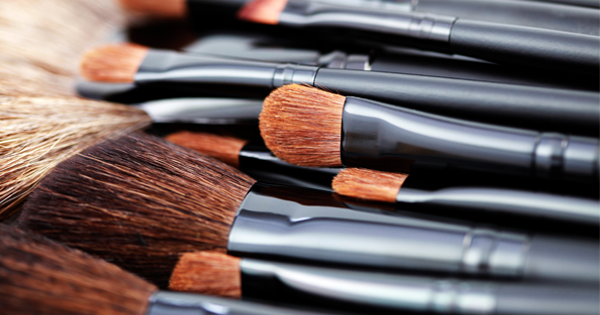Advertisement
How often do you clean your makeup brushes?
If your answer is “when I remember to” or “never,” there’s some bad news coming your way.
People who tell you to clean your brushes don’t just do it because it makes your eyeshadow color clearer—it’s because every day you don’t clean your brush, it gathers dust and bacteria, the way anything else does when it’s just sitting out.
It’s a little worse, though, when you’re putting all that dust and bacteria right back on your face.
Brushes can pick up any gross bacteria that’s on your skin or your makeup. However, it may not be surprising to learn that the most common ones are Staphylococcus and Streptococcus. You know what these cause: staph infections and strep throat.
Not only that, but dirty brushes can lead to dirty skin. You can get all kinds of skin infections from dirty brushes, not to mention acne, inflammation, irritation, and eye infections.
One dermatologist said that she’s even seen cases of fungal infection and herpes.
So what’s the best way to keep your brushes clean? Cleaning them once a week should do it. You can of course adjust to how often or how little you wear makeup, but once a week is a good baseline. If your skin is prone to oil or acne, you may want to wash those brushes a bit more often.
You don’t even have to buy a fancy brush cleanser to keep those brushes clean. Baby soap does the job just fine.
And always know when to throw those brushes out—if the brush is no longer soft or is covered in gunk, just throw it out.




